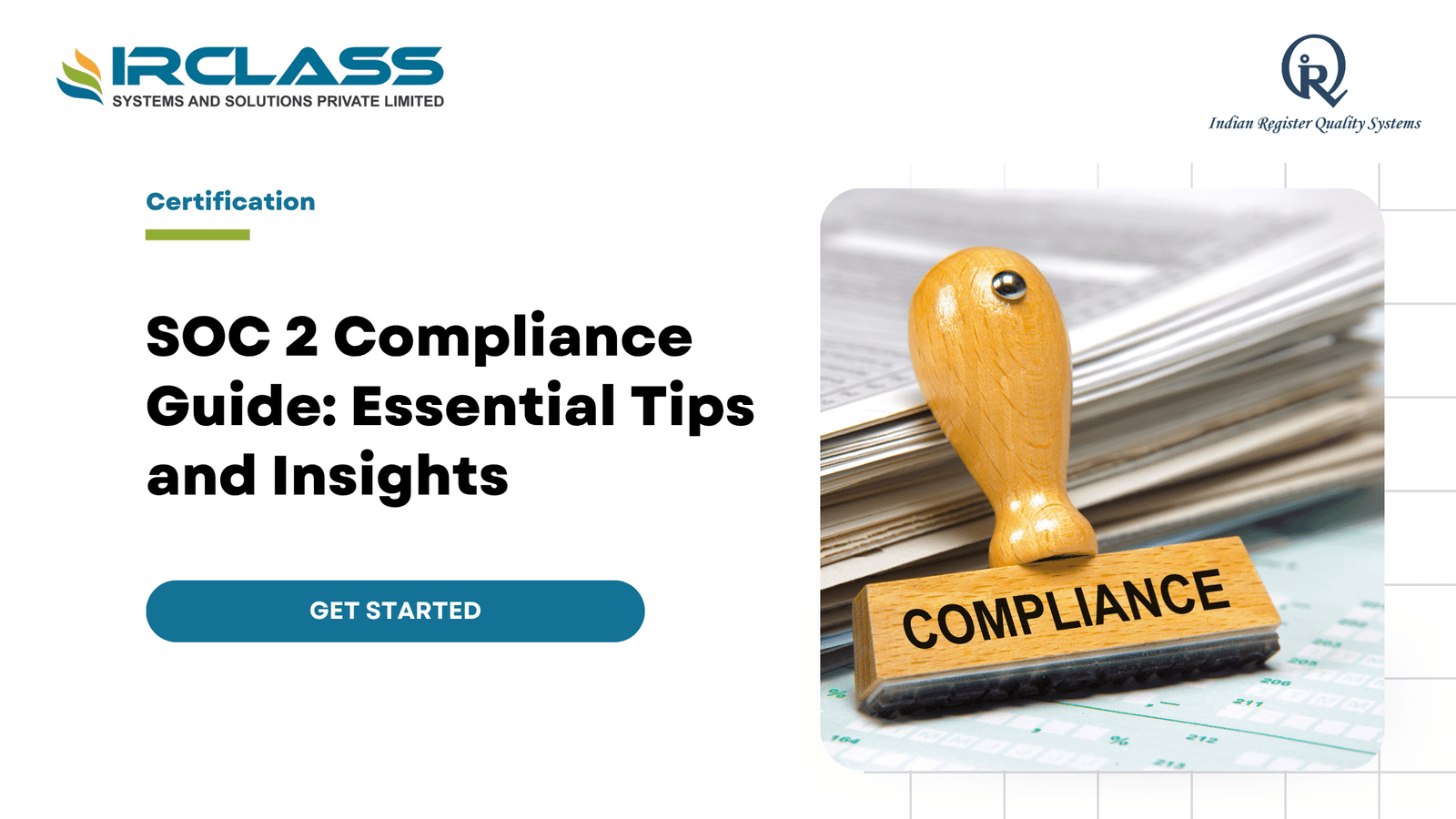Tag: BRCGS Food Safety Audits Certification

BRCGS Audits: A Step-by-Step Guide for a Seamless Certification Process
The industrial sector for food processing and production is extensive. The various standards related to food safety and quality determine the brand quality. BRCGS or British Retail Consortium Global Standards is the world-famous authorizing agency defining the essential norms for food safety and quality. One can ensure the best quality control and safety measures with BRCGS audits. The integral components of the audit are diverse and the professionals play a pivotal role in the process. One must connect to the top professionals in the industry to meet the highest standards. In the food industry, safety is a pivotal aspect. The essentiality of safety control is beyond a box to tick on a compliance checklist. Food safety is integral for consumers and brands involved in its production. Ensuring product safety and high-grade quality ensures optimal compliance with food safety standards by manufacturers, retailers, and suppliers. BRC standards and audits are part of the ideal industrial practices and frameworks. These help businesses achieve optimal safety and quality status. Achieving BRCGS certification denotes a commitment to excellence and boosts reputation. It is a noteworthy aspect of food safety, quality, and compliance with industry norms is essential. About the BRC standards – A global initiative BRC was established in 1992. The British Retail Consortium or BRC promotes the ideal practices for the food industry amidst evolving landscapes. It defines the regulatory frameworks of UK and EU food safety laws. The BRC Global Standards or BRCGS is a prime global benchmark, promoting food safety and quality programs worldwide. BRC Global Standards is a prominent safety and quality certification program for food products. The standards were developed by the British Retail Consortium, the trade association of the UK retail industry. BRCGS covers an extensive range of food safety and quality concerns. The safety issues include – food safety management systems, product safety, packaging, storage, and distribution techniques. It also delivers a framework for product safety, quality, and operational measures for the food ingredient manufacturing, processing, and packing sector. The BRC Global Standards food safety certification program helps certify suppliers across different countries. Audit and understanding – Both are necessary The BRCGS audit requires an in-depth understanding of the standards defined by the consortium. BRCGS defines various standards tailored to meet the requirements of specific sectors like – food safety, packaging, storage, and distribution. Businesses can review the relevant standards based on the industrial type and product offerings to decide the best. Preparation is necessary to ensure a successful BRCGS audit. Hiring a dedicated team to oversee the certification process is the best approach. They can conduct a gap analysis drill to identify areas the shortcomings. The proactive approach helps implement the corrective actions before the audit commences. 9 Integral aspects – Critical to note BRCGS audit is relevant for organizations meeting the following criteria – The updated standards contain nine core sections, including – Significance of audit – The BRC can improve the safety and quality of food products with the best-in-class and high standards. BRC certification is a necessity for many retailers and suppliers. The certification has helped raise the standard for food safety across the industry. One can ensure the best solution by adhering to the defined benchmarks. The BRC-certified companies can manage and mitigate the risk of food safety incidents, ensuring optimal consumer confidence in their products. Components of BRCGS audit A BRC audit evaluates the compliance and safety status and helps you match them with the BRC Global Standards. It is a comprehensive assessment of the food safety management system, food management processes, and operational procedures for the organization. The audit is conducted by an independent BRC-accredited certification body, ensuring optimal safety and reputational advantage. Make a prudent call. Ensure the best audit services with professional auditors. They have the necessary resources to simplify the process and deliver accurate reports on the food safety index. IRQS is first certification body to receive NABCB Accreditation for BRCGS standard in India. Consider the professional services to ensure optimal accuracy.

BRCGS Certification: Improve Food Safety Culture
Food safety culture is a modern term for food safety. It is challenging to define it for organizations with their respective requirements of food safety culture. Dr. Joanne Taylor developed the modern term food safety culture in the Food Safety Culture Excellence Model. Dr. Taylor defined food safety culture as the “prevailing attitudes, values, and practices related to food safety that are taught, directly and indirectly, to new employees”. Global Food Safety Initiative (GFSI) and BRCGS have similar definitions. The GFSI outlines food safety culture as “shared values, beliefs and norms that affect mindset and behavior toward food safety in, across and throughout an organization.” On the other hand, BRCGS delivers a definition of the culture as – “The attitudes, values, and/or beliefs which are prevalent at the site, relating to the importance of product safety, and the confidence in the product safety systems, processes and procedures used by the site.” One can notice the similarities among these definitions. But food safety culture is more than these definitions. It is developed with multiple aspects that are all equally important. Food safety culture is a culture of a business or workplace focusing on all vital aspects of food safety. It demonstrates the ideal standards of safety for all members of staff. Essentiality of food safety Anyone related to the food-based business can recognize the essentiality of food safety and its role within the organization. It is convenient to display and remind the staff to uphold the ideal practices and procedures with the updated food safety culture. It is a straightforward task to monitor compliance with the due diligence checklists. BRCGS Food Safety Issue 9 has elaborated on the concept of food safety culture. It is an indispensable choice for senior management to exhibit a commitment level. It also promotes continuous improvement of food safety culture within an organization during a professional certification or internal audit. Companies with an enhanced opportunity for business can market their food safety culture and get it assessed, during the on-site food safety audit. Boosting the practices of a food safety culture in an organization or business can augment the scope of training on food safety practices for staff. In the long run, it generates benefits such as optimal compliance, zero legal issues and premium safety standards throughout the business, and an engaged workforce. Understanding from the organization’s perspective A well-defined food safety culture will assist the organization score high. One can always be prepared for an unplanned and unannounced audit with a well-defined food safety culture. The significance of food safety leads to fewer costly recalls. In the long run, it impacts the profit and saves the business from potentially brand-damaging food safety accidents. One can avoid loopholes and unprofessional behavior that may result in unsafe food. One can save resources to minimize the expense and manage better. From product recalls, food wastage, legal fees, and damaged reputation – find suitable solutions with the food safety culture. All these are incentives for an organization to implement an excellent food safety culture. Apart from these, food safety culture helps employees feel engaged with their work. Better awareness and knowledge act as bonus pointers for them to act in accordance with the organization’s values and principles. It helps in aligning the staff and makes them better workers and ambassadors for the business in the long run. Food safety culture enhances staff engagement and retention. A company with a mature food safety culture, exhibits a uniform policy about everything in the business, including GMP or Good Manufacturing Practices, leading to business success. About BRCGS – Get an overall idea. BRCGS stands for British Retail Consortium Global Standards. BRCGS was established in 1996 and it was in this year that BRC published the first standard, BRC Food Technical Standard. BRCGS is led by the LGC group, a global life sciences measurement and testing company. BRCGS is a leading global brand essential to strengthen a business. The objective of BRCGS is to promote food safety, for food and non-food industrial categories. The purpose of BRCGS is to implement ideas and proven practices, assure quality, and develop confidence in the supply chain. BRCGS was created by retailers and incorporated by businesses across industries. Simply put, the BRCGS norms ensure product safety and quality and simultaneously safeguard the business from facing any charges by the enforcement authorities. Features that improve the food safety The BRCGS is critical for – Businesses following standard and reliable manufacturing practices can assure their vendors and customers about the safety of their manufactured products. BRCGS certification exhibits that the products are safe, legal, and of premium quality. Here are some stats to prove the point – BRCGS is a benchmark practice in the food industry across the globe. A lot depends on its acceptance at the global level. BRCGS empowers organizations and brands in the food industry to expand across the globe meeting the ideal quality standards. BRCGS offers a structured framework helping you ensure and maintain product safety, integrity, legal compliance, and quality. It streamlines the management of operational activities, including food ingredient manufacturing, processing, packaging materials, etc. Summing the benefits Comply with the food safety norms. With the ever-evolving significance of food safety and the expansion of food and packaging industries at a global level, food safety is an indispensable topic. It is a concerning issue in the current times. Food safety culture is also vital for the ones venturing into the food supply chain, manufacturing, and packaging industry. Ensure customer safety and protect brand reputation with a prudent choice. Get the BRCGS certification with the apt steps.
Search
Useful Links
Recent Posts

What Is Carbon Footprint Verification & Why It’s Critical for Your ESG Goals

Why ESG Reporting Is the Future of Business Strategy



